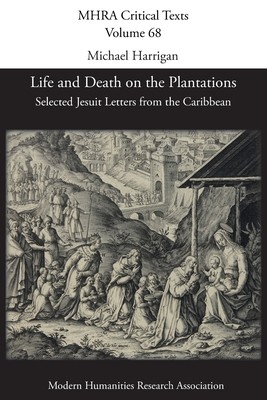
- We will send in 10–14 business days.
- Publisher: Modern Humanities Research Association
- ISBN-10: 1781889015
- ISBN-13: 9781781889015
- Format: 15.6 x 23.4 x 1.5 cm, minkšti viršeliai
- Language: English
- SAVE -10% with code: EXTRA
Life and Death on the Plantations (e-book) (used book) | bookbook.eu
Reviews
Description
This is a bilingual French-English edition of correspondence relating to the theme of early French slavery. Mongin's letters are an invaluable source of data about the early plantation environment. Bréban's reflects the development of the more mature plantation society of the eighteenth century. He gives new perspectives on some of the themes discussed by Mongin, such as the reasons for the enslavement of Africans, and the question of what would be called 'racial' difference.
Both clerics testify to first-hand contacts between Europeans and slaves in the variable, unstable early plantation context. They also reflect wider theoretical concerns such as the extent of proprietary rights, the legitimacy of possessing the body, and the legitimacy of slavery itself. Their perspectives call into question the idea of a unified, homogenous, 'colonial' discourse.
EXTRA 10 % discount with code: EXTRA
The promotion ends in 21d.13:25:18
The discount code is valid when purchasing from 10 €. Discounts do not stack.
- Publisher: Modern Humanities Research Association
- ISBN-10: 1781889015
- ISBN-13: 9781781889015
- Format: 15.6 x 23.4 x 1.5 cm, minkšti viršeliai
- Language: English English
This is a bilingual French-English edition of correspondence relating to the theme of early French slavery. Mongin's letters are an invaluable source of data about the early plantation environment. Bréban's reflects the development of the more mature plantation society of the eighteenth century. He gives new perspectives on some of the themes discussed by Mongin, such as the reasons for the enslavement of Africans, and the question of what would be called 'racial' difference.
Both clerics testify to first-hand contacts between Europeans and slaves in the variable, unstable early plantation context. They also reflect wider theoretical concerns such as the extent of proprietary rights, the legitimacy of possessing the body, and the legitimacy of slavery itself. Their perspectives call into question the idea of a unified, homogenous, 'colonial' discourse.


Reviews